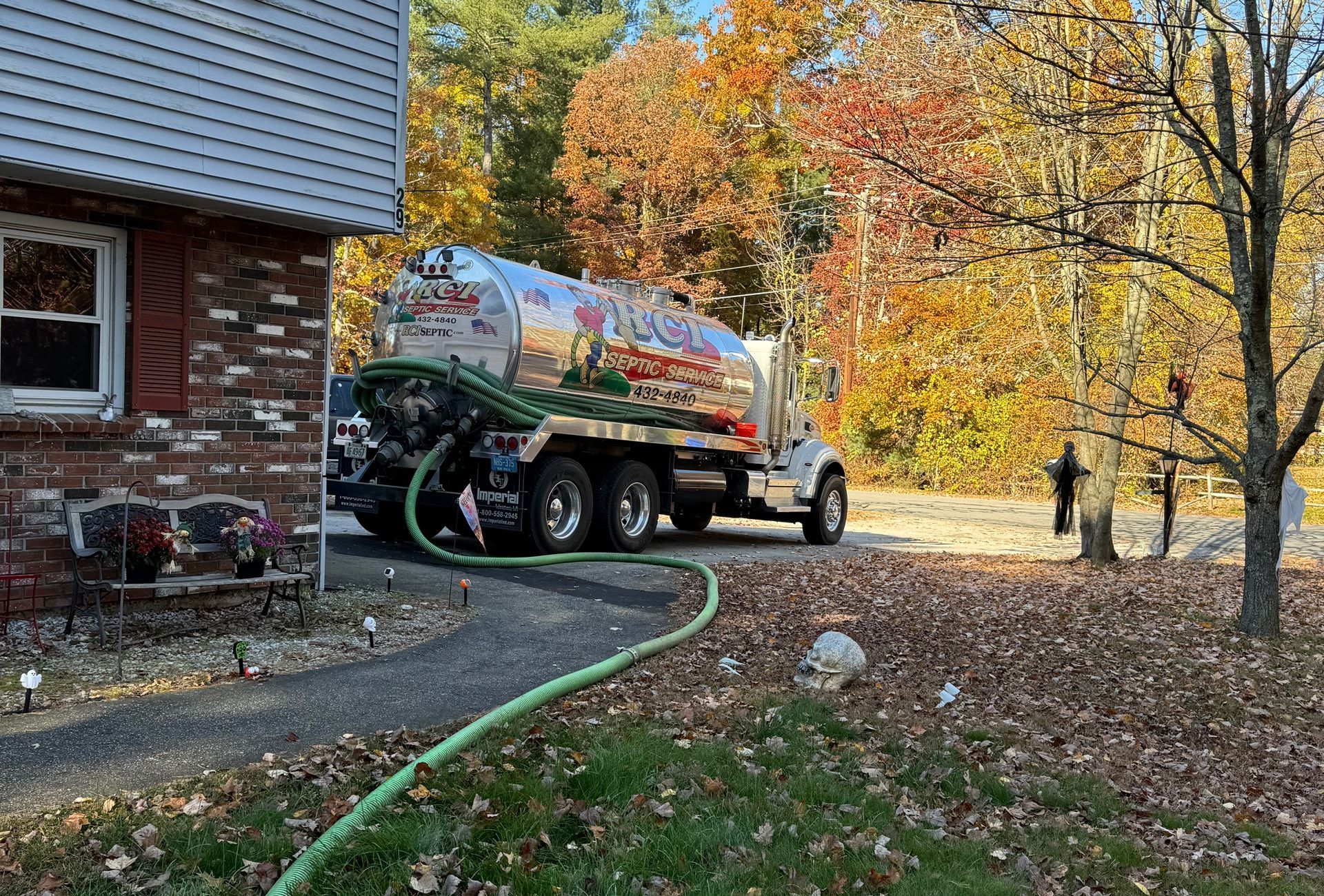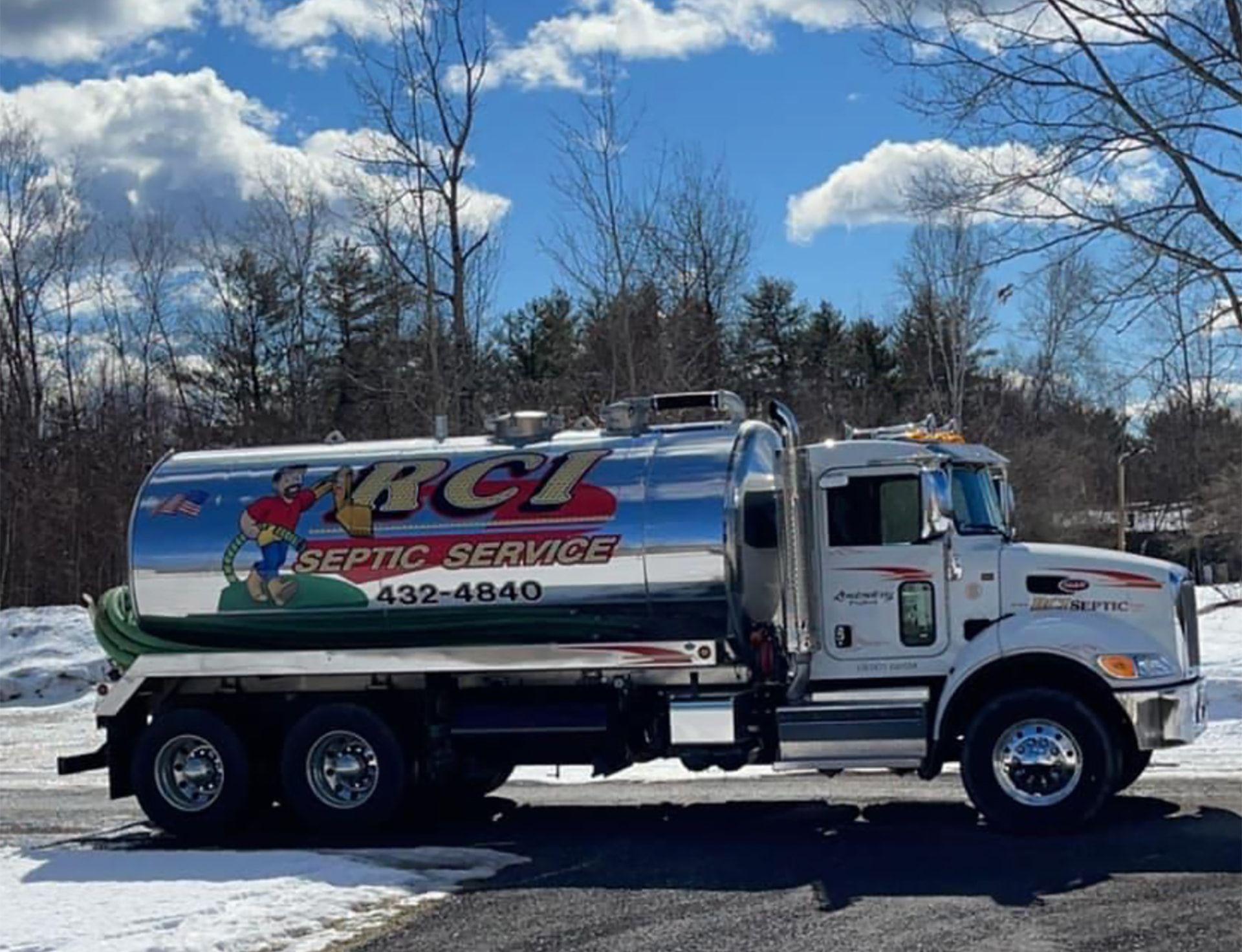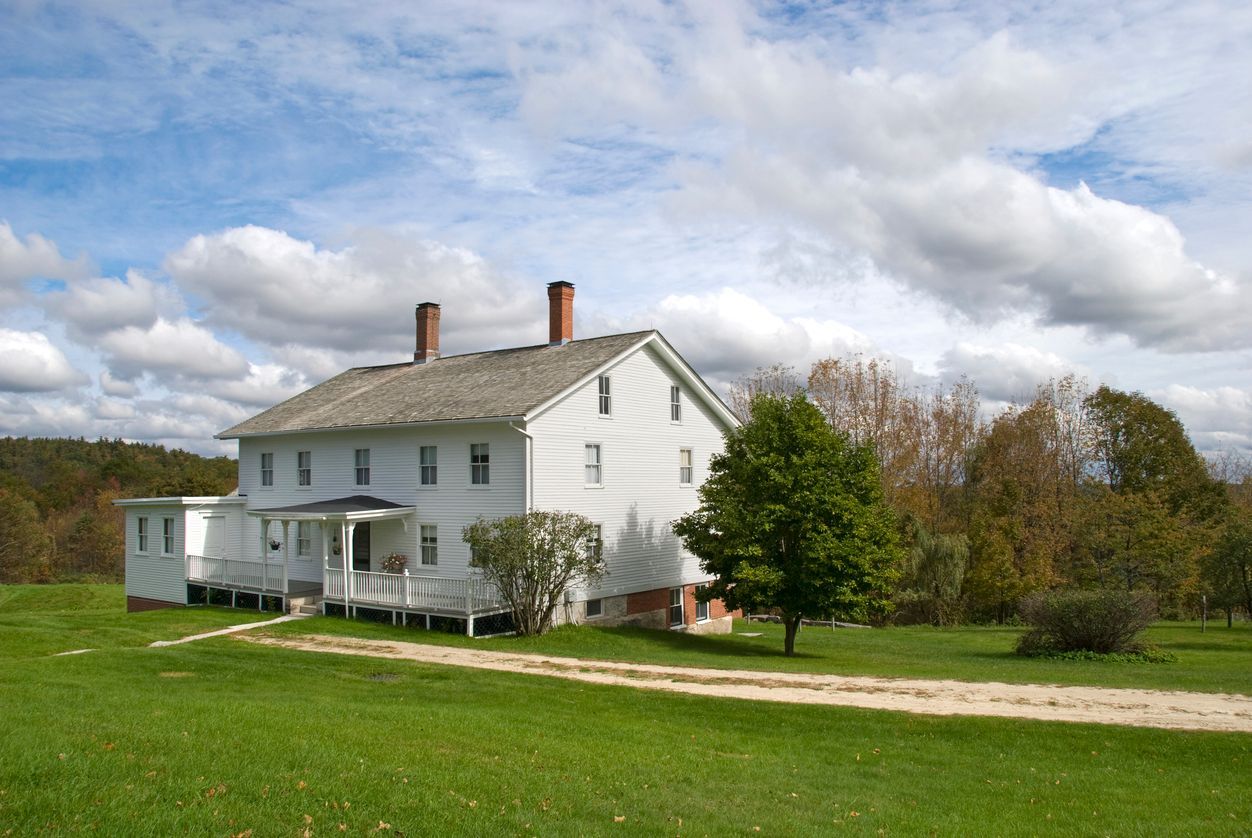How Often Should You Pump Your Septic Tank in New Hampshire: Real Timelines for NH Soil and Weather
New Hampshire homeowners need to pump their septic tanks more frequently than national averages due to the state’s unique soil conditions and harsh four-season climate. The recommended schedule is yearly for households of 5 or more people, every 2 years for 3-4 people, and every 3 years for households of 1-2 people. These timelines account for New Hampshire’s challenging environmental conditions that accelerate septic system stress and sludge accumulation.

New Hampshire Septic Pumping Frequency Guidelines
The New Hampshire Department of Environmental Services recommends septic tank pumping based on household size, but local conditions require more conservative schedules. For optimal septic system maintenance in New Hampshire:
- Households of 5+ people: Annual pumping prevents system overload during peak usage periods and accommodates the rapid accumulation of solids in busy homes
- Households of 3-4 people: Pumping every 2 years balances cost-effectiveness with system protection, especially important during New Hampshire’s challenging weather cycles
- Households of 1-2 people: Every 3 years maintains healthy septic system function while accounting for seasonal usage patterns common in New Hampshire properties
RCI Septic Service’s 25+ years of experience serving southern New Hampshire has confirmed these timelines provide optimal protection against costly repairs and system failure. Their proven track record demonstrates that following these schedules significantly extends septic system lifespan compared to generic national recommendations.
A quick reference for New Hampshire homeowners shows that tank capacity also influences pumping frequency. Properties with 1,000-gallon tanks may need more frequent pumping than those with 1,500-gallon systems, regardless of household size.
How New Hampshire Soil Conditions Affect Pumping Frequency
New Hampshire’s diverse soil types create varying drainage conditions that directly impact septic pumping schedules. Understanding your property’s soil composition helps determine the optimal maintenance frequency for your septic system.
Clay soils, prevalent in southern New Hampshire communities like Londonderry and Derry, drain slowly and require more frequent pumping. These compacted soils prevent efficient wastewater filtration, meaning accumulated solids must be removed more often to prevent sewage backups. Homeowners with clay soil should consider pumping every 2-3 years regardless of household size.
Sandy soils in New Hampshire’s seacoast areas provide faster drainage and may allow slightly longer intervals between pumping. However, these soils also increase the risk of groundwater contamination if the septic system fails, making regular inspections crucial for protecting public health.
Rocky soil conditions in central and northern New Hampshire create uneven drainage patterns that stress septic systems. The combination of shallow soil depth and bedrock can cause seasonal water table fluctuations that affect system efficiency and require customized pumping schedules.
Seasonal soil saturation levels throughout New Hampshire significantly impact septic system performance. Spring snowmelt and heavy rainfall periods can saturate drain fields, reducing their ability to process wastewater and increasing pressure on septic tanks.
Soil percolation rates vary dramatically across New Hampshire counties, from fast-draining areas near the coast to slow-percolating regions in the Connecticut River Valley. Professional soil evaluation helps determine appropriate pumping frequency adjustments for local conditions.
New Hampshire Weather Patterns and Septic System Impact
New Hampshire’s extreme weather patterns create unique challenges for septic systems that directly affect pumping schedules. The state’s four-season climate accelerates system stress compared to milder regions.
Harsh New Hampshire winters from December through March freeze ground surfaces and slow bacterial breakdown processes inside septic tanks. Frozen conditions prevent natural decomposition of waste, causing faster accumulation of solids that require removing through more frequent pumping.
Spring snowmelt and heavy rainfall from March through May create soil saturation that reduces leach field efficiency. During these periods, septic systems work harder to process wastewater, increasing stress on tanks and accelerating the need for maintenance.
Summer heat stress from June through August coincides with peak water usage during vacation season in New Hampshire’s lake and mountain regions. Higher temperatures and increased occupancy strain septic systems, contributing to faster sludge buildup and potential system failure.
Fall preparation from September through November represents the optimal pumping window for New Hampshire homeowners. This timing prepares systems for winter challenges while taking advantage of stable ground conditions and moderate weather.
The four-season climate cycle in New Hampshire accelerates sludge buildup compared to milder climates, making regular pumping essential for preventing costly repairs and maintaining system efficiency.

Household and Property Factors in New Hampshire
New Hampshire properties present unique challenges that influence septic pumping frequency beyond standard household size calculations. Seasonal occupancy patterns significantly impact waste generation and system stress.
Many New Hampshire lake and mountain properties experience dramatic seasonal usage variations. Summer cottages that accommodate extended families during vacation months may need annual pumping despite being occupied by only 1-2 people year-round.
Water usage spikes during holiday gatherings are particularly common in New Hampshire homes, where families traditionally gather for winter celebrations. These periods of intensive use can overwhelm septic systems and accelerate the need for pumping.
The age of septic systems throughout New Hampshire is a critical factor, as many residential systems are 20+ years old and require more frequent maintenance. Older systems may have smaller tank capacities or compromised components that necessitate shorter intervals between pumping.
Garbage disposals and water softeners are common in New Hampshire homes and significantly impact septic system performance. These appliances increase organic waste and alter bacterial balance in tanks, often requiring more frequent pumping to maintain healthy system function.
Well water versus municipal water affects septic system performance differently. New Hampshire’s abundant well water often contains higher mineral content that can impact bacterial processes and influence optimal pumping schedules.
Optimal Timing for Septic Pumping in New Hampshire
Timing septic tank pumping around New Hampshire’s seasonal challenges maximizes system protection and ensures reliable service access. Strategic scheduling prevents emergency situations and costly repairs.
Late spring pumping from May through June offers ideal conditions after ground thaw but before summer usage peaks. This timing allows systems to handle increased summer demand while ensuring access for pumping equipment after winter restrictions.
Early fall pumping from September through October prepares septic systems for winter challenges and holiday season usage. This proactive approach prevents problems during periods when emergency repairs are difficult and expensive.
Avoiding winter pumping protects both homeowners and service providers from dangerous conditions. Frozen ground makes system access difficult, and emergency pumping during New Hampshire winters can cost significantly more than scheduled maintenance.
Summer pumping should be reserved for emergency situations only, as systems are already stressed by peak usage. Disrupting bacterial balance during high-demand periods can compromise system efficiency when it’s needed most.
Scheduling around New Hampshire’s brief construction seasons ensures equipment access and reasonable service costs. Professional septic service providers like RCI Septic Service can help homeowners plan optimal timing based on local conditions.
Warning Signs Your NH Septic System Needs Immediate Pumping
New Hampshire’s environmental conditions create specific warning signs that indicate immediate pumping needs. Recognizing these signals prevents system failure and protects groundwater quality.
Slow drainage after spring snowmelt indicates system overload from saturated soil conditions. When toilets and drains respond sluggishly following winter, accumulated solids may be overwhelming the septic tank’s capacity.
Sewage odors during humid summer months signal bacterial imbalance or tank overflow. New Hampshire’s high humidity can intensify foul odors from failing septic systems, indicating urgent need for pumping and inspection.
Standing water or soggy areas in the yard after typical New Hampshire rainfall patterns suggest drain field problems. When leach fields cannot absorb wastewater efficiently, backing up sewage creates health hazards requiring immediate attention.
Backup issues during peak usage periods like holidays or summer gatherings indicate insufficient tank capacity. Systems that work normally during low usage but fail during busy periods need immediate pumping to restore function.
Gurgling sounds in plumbing during New Hampshire’s high groundwater periods suggest system stress. When water tables rise seasonally, compromised septic systems cannot drain properly and require professional evaluation.

Why Choose Professional Septic Services in New Hampshire
New Hampshire’s unique environmental challenges require professional expertise for reliable septic system maintenance. Local knowledge and specialized equipment ensure effective service regardless of weather conditions.
RCI Septic Service’s understanding of local soil conditions and regulations provides homeowners with confidence in their septic system maintenance. Their experience with southern New Hampshire’s diverse soil types enables customized pumping schedules that protect systems and groundwater.
Proper equipment for accessing systems in challenging New Hampshire weather ensures reliable service year-round. Professional septic service providers maintain specialized vehicles and tools designed to operate in harsh conditions common throughout the state.
Knowledge of state-specific disposal requirements and environmental protection regulations guarantees compliant waste handling. New Hampshire’s strict environmental services standards require professional expertise to protect water quality and avoid violations.
Emergency services during New Hampshire’s harsh winter conditions provide homeowners with peace of mind. When septic problems occur during storms or extreme cold, professional services can respond safely and effectively.
Comprehensive system inspection with each pumping service helps identify potential problems before they become costly repairs. Professional technicians can spot warning signs of system failure and recommend preventive maintenance.
How do New Hampshire soil types affect septic pumping schedules?
New Hampshire’s soil composition directly influences how frequently homeowners need to pump their septic tanks. Understanding local soil conditions helps determine optimal maintenance schedules for protecting groundwater and preventing system failure.
Clay soils throughout southern and central New Hampshire require pumping every 2-3 years due to slow drainage characteristics. These dense soils prevent efficient wastewater filtration, causing accumulated solids to build up faster and potentially contaminate groundwater if not removed regularly.
Sandy soils near New Hampshire’s seacoast may extend intervals to 3-4 years with proper maintenance and regular inspections. While these soils drain more effectively, they also pose higher contamination risks if septic systems fail, making professional monitoring essential for protecting public health.
Rocky soils create uneven drainage patterns that require customized pumping schedules based on individual property conditions. The shallow soil depth common in granite-rich areas of New Hampshire can cause seasonal water table fluctuations that stress septic systems.
Professional soil evaluation by experienced septic service providers determines optimal pumping frequency for specific property conditions. Local expertise ensures homeowners receive appropriate recommendations that protect their investment and comply with local regulations.
What makes New Hampshire weather challenging for septic systems?
New Hampshire’s extreme four-season climate creates multiple challenges that accelerate septic system stress and influence maintenance requirements. Understanding these weather impacts helps homeowners prepare for seasonal demands on their sewage disposal systems.
Freeze-thaw cycles throughout New Hampshire winters stress system components and increase failure risk by expanding and contracting pipes, tanks, and soil. These temperature fluctuations can crack septic tank walls and damage connecting pipes, requiring more frequent inspections and potentially more frequent pumping.
Heavy spring runoff from snowmelt saturates drain fields and reduces system efficiency when wastewater cannot properly filter through saturated soil. During these periods, septic tanks may overflow or backup into homes, indicating immediate need for pumping and system evaluation.
Summer drought conditions concentrate waste and accelerate sludge buildup as reduced water dilution increases solid accumulation rates. High temperatures also stress bacterial processes essential for waste breakdown, potentially requiring adjusted pumping schedules during extended dry periods.
Extended winter ground freeze limits natural bacterial breakdown processes that normally help decompose waste in septic tanks. Reduced biological activity means accumulated solids build up faster during cold months, contributing to the need for more frequent pumping compared to warmer climates.
When is the best time to pump septic tanks in New Hampshire?
Strategic timing for septic tank pumping in New Hampshire maximizes system protection while ensuring reliable access for maintenance services. Planning around seasonal conditions prevents emergency situations and reduces long-term costs.
Late spring pumping in May offers ideal ground conditions and moderate weather that benefit both homeowners and service providers. This timing allows systems to handle upcoming summer demand while ensuring equipment access after winter ground thaw.
Early fall pumping from September through October prepares septic systems for winter challenges and holiday season usage. This proactive maintenance prevents problems during periods when emergency repairs are difficult, expensive, and potentially dangerous.
Avoid winter pumping due to frozen ground conditions and limited equipment access that can make routine maintenance dangerous and costly. Emergency winter service may be necessary but costs significantly more than properly scheduled maintenance.
Summer pumping is possible but may stress already-working systems during peak usage periods when vacation properties and holiday gatherings increase demand. If summer pumping becomes necessary, professional technicians can minimize system disruption while maintaining efficiency.
How does household size affect pumping frequency in NH conditions?
New Hampshire’s challenging environmental conditions require adjusted pumping schedules based on household size to account for climate stress and seasonal usage patterns. Local factors intensify the impact of occupancy on septic system performance.
Households of 5+ people need annual pumping due to high waste volume combined with New Hampshire’s climate stress that accelerates sludge accumulation. Large families generate substantial wastewater that, when combined with seasonal ground saturation and freeze-thaw cycles, can quickly overwhelm septic tank capacity.
Households of 3-4 people require pumping every 2 years with additional considerations for seasonal usage patterns common in New Hampshire. Many properties experience visitor increases during summer months or holiday periods that temporarily stress systems designed for smaller occupancy.
Households of 1-2 people can typically extend to 3-year intervals but should monitor system performance during wet springs when saturated soil conditions stress even lightly-used septic systems. Professional inspections help determine if local conditions require more frequent maintenance.
Seasonal residents may need adjusted schedules based on occupancy patterns that concentrate usage into shorter periods. Summer cottages or winter ski properties often experience intensive use that requires more frequent pumping despite limited annual occupancy.
Contact RCI Septic Service for professional septic system maintenance tailored to New Hampshire’s unique conditions. Visit https://www.rciseptic.com to learn more about their comprehensive septic services and schedule your pumping today.


